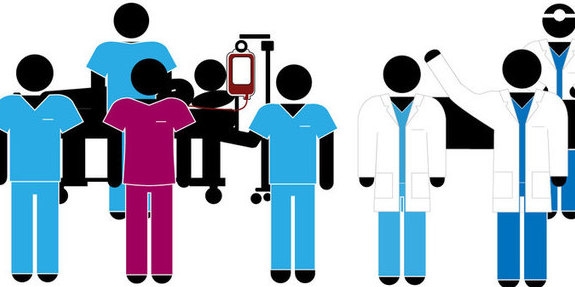There is a reason why Babah Tarawally’s mother in Sierra Leone (read the full story in our ZAM Report) immediately believed that Ebola was the ‘white man’s virus,’ developed by white scientists to attack ‘poor Africans’. But that reason is not that she is superstitious.
Yes, she believes in witchcraft. Many poor people in countries where powerful forces beyond their control continuously affect their lives do. Powerlessness and belief in magic are connected: ask anybody who, desperate to fight cancer, has turned to goji berries. If you live in Sierra Leone, you might as well believe in witches as in the International Monetary Fund.
But the easy acceptance of the conspiracy theory that Ebola is a biological weapon targeted by whites at blacks is not the same as believing in witchcraft. Laboratories where scientists devise biological weapons really do exist. And most of these scientists are white.
Such conspiracy theories arise, and are believed, with some regularity. At an African investigative journalism conference in 2003, several of the participants were seriously looking at scientific-looking websites that alleged that the Aids virus has been similarly developed by white scientists to decimate populations in Africa. Recently, Islamic organisations in Nigeria and Catholic Bishops in Kenya rehashed old conspiracy theories regarding vaccines that, according to the loony websites they had seen, would have been developed by ‘The West’ to render African women infertile. Paradoxically and tragically, it is always those very conspiracy theories that cause Africans who, in fear, then refuse the vaccines, to either die of tetanus or become crippled with polio.
Who the people behind the loony websites are is another story; they are, of course, the real murderers. But the question remains why the allegation that ‘whites’ would use ‘their’ science to develop diseases to kill (or render infertile) black people, is so readily believed. In Babah Tarawally’s case: an educated African living in the West felt that he had to tell his mum back home such a story in order to get her to prevent infection. “It is the only way I can make her understand that this is something our native healers can’t handle”, Tarawally writes.
Governments are to blame for most avoidable deaths in West Africa
The chilling truth is that, to many a poor African, it will appear completely natural that ‘the white man’ would want to get rid of him and others like him. Why would anyone want to keep poor Africans? They don’t bring assets to the world’s table (well, they do, but their diamonds and other resources generally travel very well without them); they have needs; their own governments generally don’t care much about them; they require development aid and white Doctors without Borders. Africans like Babah Tarawally’s mum receive these messages all the time. Anybody who ever felt dependent will fear being a bother to those who help. The thought that those who help you will at some point secretly wish you would just go away is perfectly logical.
There is also plenty evidence that powerful forces in international health infrastructure really don’t care if you, as a poor African, live or die. It is not just that there isn’t a functioning clinic or hospital anywhere around you. It is also that the clinical trials conducted by the pharmaceutical industry in your country, use -with the complicity of your own elite and government- your people as ‘cheap’ guinea pigs. In South Africa, poison doctor Wouter Basson managed to get millions in funding from the apartheid government for his ‘development of biological weapons’ that –and the white minority regime in SA believed that this could exist- would kill only blacks. Seen in this social and historical context, it is not at all irrational to fear that the foreign doctor in the Hazmat suit visiting your village is not there to help but to execute what you suspected all along: the project to get rid of you.
Thank the gods, therefore, for Nigerian Academy of Science president Oyewale Tomori, who has taken the health challenge where it belongs: to African governments. In West Africa, their neglect may have caused more avoidable Ebola deaths in the region than all loony conspiracy websites and witchdoctors combined. They should now urgently prioritise clinics, medicines and doctors for their own people instead of waiting for help from outside.
Thank the gods, also, for health activists like those in Kampala, Uganda, who –in the case of the Nodding Disease epidemic- bused sick children from the rural areas, parked them on the steps of the poshest hospital in town, and got treatment.
With the combined pressure from professionals, activists and those who stand in solidarity with them, citizens in African countries may finally come to feel as deserving of proper health care as anybody. Amid all the ‘Africa rising’ propaganda and the peacock-posturing by African leaders in this context, it is about bloody time.


